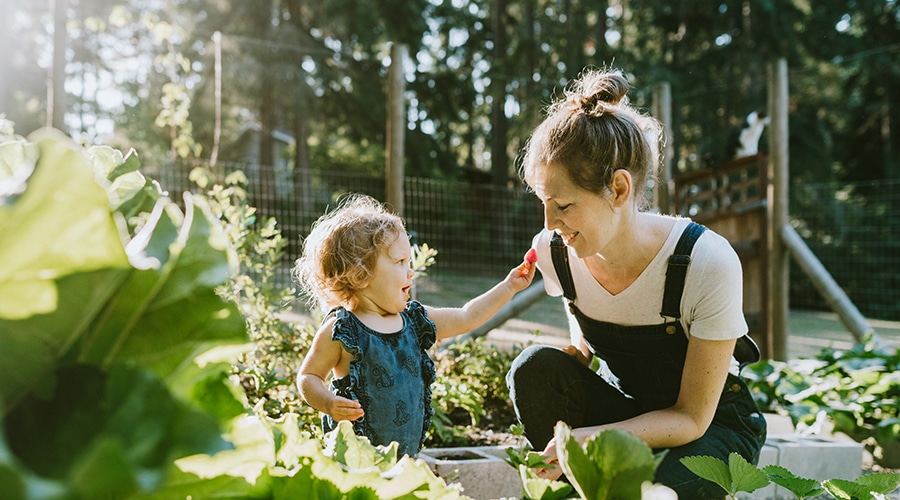In our fast-paced and often hectic world, finding ways to prioritize our mental health has become increasingly important. Thankfully, there’s a delightful and accessible practice that can bring peace, joy, and a sense of tranquility to our lives: gardening and landscaping. These age-old activities not only allow us to connect with nature but also offer incredible benefits for our mental well-being.
Nature has always held a special place in our hearts, and spending time outdoors has a way of rejuvenating our spirits. Engaging in gardening allows us to immerse ourselves in the natural world, fostering a sense of wonder and serenity. Whether you have a large garden or a tiny patch of green space, the act of tending to plants and creating beautiful outdoor environments can have a profound impact.
Throughout this article, we’ll uncover the therapeutic benefits of gardening and landscaping. From reducing stress and lifting our mood, to boosting self-esteem and promoting overall mental wellness, these activities provide a much-needed respite from the daily pressures of life.
Cultivating Tranquility: The Therapeutic Benefits of Gardening
and Landscaping

In the hustle and bustle of modern life, finding moments of calm and tranquility can be a challenge. Fortunately, the practice of gardening and landscaping offers a serene and therapeutic escape from the daily stresses we encounter.
Stress Reduction: A Breath of Fresh Air
The act of gardening and landscaping invites us to step away from the demands of our daily routines and immerse ourselves in a natural oasis. Studies have shown that spending time in green spaces can significantly reduce stress levels and promote a sense of calm. Whether it’s tending to plants, raking leaves, or simply enjoying the beauty of a well-tended garden, the sights, sounds, and smells of nature have a soothing effect on our minds and bodies.
Engaging in gardening activities also encourages mindfulness and being present in the moment. As we focus on the task at hand, our worries and anxieties tend to fade away, replaced by a meditative state that brings a sense of tranquility. The rhythmic movements, such as digging, planting, and watering, create a soothing rhythm that can quiet our racing thoughts and promote a state of relaxation.
Connecting with Nature: A Source of Serenity
In an increasingly digital world, where screens dominate our attention, reconnecting with nature has become crucial for our well-being. Gardening and landscaping provide a tangible and hands-on way to immerse ourselves in the beauty and rhythms of the natural world. By nurturing plants, observing their growth, and caring for their well-being, we form a deep connection with the earth and its cycles.
This connection with nature can be profoundly calming and grounding. The vibrant colors, gentle breeze, and earthy scents of the garden engage our senses and create a serene environment. Being surrounded by greenery and embracing the natural elements can help us find solace, reduce feelings of overwhelm, and foster a greater appreciation for the simple joys in life.
Outdoor Therapy: Vitamin D and Fresh Air
Gardening and landscaping provide an excellent opportunity to spend time outdoors and soak up the benefits of sunshine and fresh air. Exposure to natural light stimulates the production of vitamin D in our bodies, which is essential for maintaining good mental health. Vitamin D has been linked to improved mood and reduced symptoms of depression and anxiety.
Additionally, spending time in nature allows us to breathe in fresh air, which can have a rejuvenating effect on our minds and bodies. The combination of vitamin D absorption and the invigorating qualities of outdoor air can help boost our energy levels, improve cognitive function, and enhance overall well-being.
Nurturing Well-Being: Gardening and Landscaping as a Supportive Tool for Addiction Treatment
Gardening and landscaping not only contribute to our overall mental well-being but also hold tremendous potential as a supportive tool in addiction treatment. In this section, we delve into how engaging in these activities can positively impact individuals undergoing addiction treatment, providing them with a nurturing environment for their recovery journey.
Therapeutic Distraction: Shifting Focus and Breaking Patterns
Addiction treatment often involves breaking free from harmful patterns and redirecting one’s focus toward healthier alternatives. Gardening and landscaping offer a therapeutic distraction that can aid individuals in shifting their attention away from addictive behaviors and redirecting their energy toward cultivating and caring for plants.
The process of tending to plants and creating a beautiful outdoor space allows individuals to engage in a constructive and fulfilling activity. It provides a sense of purpose and accomplishment, helping to fill the void that addictive behaviors once occupied. As individuals witness the growth and transformation of their garden, they experience a tangible representation of their own progress and resilience, fostering a positive mindset and boosting self-esteem.
Coping Mechanisms: Finding Solace and Emotional Regulation
Recovering from addiction involves developing healthy coping mechanisms to navigate life’s challenges without resorting to substances or destructive behaviors. Gardening and landscaping offer a natural and nurturing outlet for emotional expression and regulation.
The act of working with plants and soil can be therapeutic, allowing individuals to channel their emotions and find solace in the process. Whether it’s the physical exertion of digging, the gentle rhythm of watering, or the mindful observation of nature, these activities can provide a healthy means of processing emotions, reducing anxiety, and promoting emotional well-being.
Connection and Community: Building Supportive Networks
Addiction recovery often benefits from a supportive network of individuals who understand the challenges and triumphs of the journey. Gardening and landscaping can foster a sense of connection and community, offering opportunities for individuals undergoing addiction treatment to engage with like-minded individuals or join community gardening initiatives.
By participating in group gardening activities, individuals can form meaningful connections, share experiences, and provide mutual support. Engaging in collaborative projects and exchanging knowledge and tips can foster a sense of belonging and empowerment, reinforcing positive social connections that contribute to their recovery process.
Creating a garden, whether it be a large green space or a small window box, is both good for your health and an easy way to make your home more beautiful. So go enjoy every minute of creating your own outdoor space.
